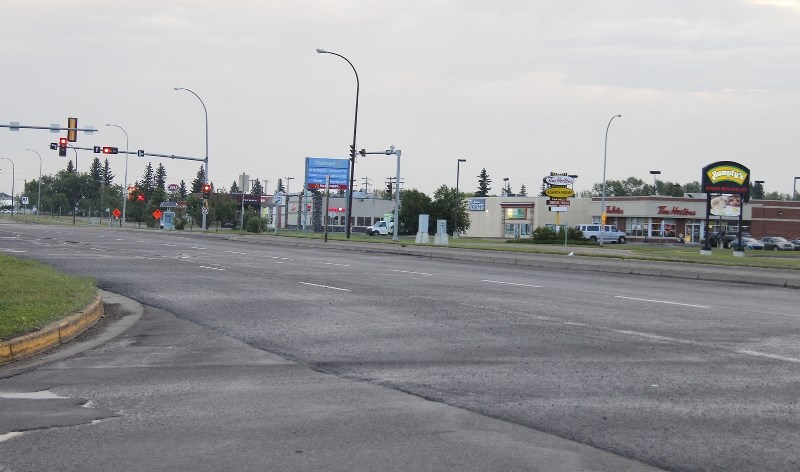The City of Cold Lake is testing micro surfacing as a way to extend the lifetime of their roads.
In order to cut costs related to fully reconstructing roads, the city is implementing a preventative maintenance technique brand new to the region.
“Instead of milling out asphalt and replacing it with a new surface, there will be an additive put into the existing surface to extend the life of the asphalt,” explained city CAO Kevin Nagoya.
A mixture of small rocks, asphalt, and water will be applied in a thin layer over existing asphalt. The process itself takes little time and costs next to nothing.
All of the roads selected by the city for micro surfacing have already been completed. In an effort to gather the most accurate statistics possible, the city was careful in selecting which roads to maintain.
“The intent is to try this out in medium and high-traffic zones. We looked at both highway and residential areas to see what the longevity will be and how micro surfacing reacts to conditions in the community,” Nagoya said.
Micro surfacing has already been implemented on 30,000-square feet of road. A stretch of Hwy. 28 from 43 Ave. to 34 Ave., 51 Ave. from 49 St. to 47 St., and stretches of Hwy. 55 west have already been treated. Approximately 550 -metres of Veterans Dr., west of 57 St. has also been micro surfaced.
In addition to having a report on the condition of every road, the city has an idea of how fast they'll degrade. They took all information into consideration when choosing which roads to test.
“Every road in the city has a condition assessment and a degradation curve. When a large truck passes over the asphalt, it deflects, and is therefore deteriorating. We can measure that and use it to get an idea of the degradation of all of the roadways in the community,” explained Nagoya.
Whether or not micro surfacing will make a significant difference won't be determined for at least a few years. During which time, the city will monitor degradation of roads that have been micro surfaced versus roads that haven't.
If properly implemented, the process could extend the life expectancy of city roads by up to 10 years.
“We want to apply the new surface before there are major ruts or cracks in the roadways. If we can do that in the first five to 10 years, that pavement will no longer be good for 25 years, it could actually be in use for closer to 35 years,” Nagoya informed.
Though Cold Lake would be the first in the region to implement the maintenance method, it has proven useful in other areas of the province. Nagoya hopes the city can be the first in the northeast region to repeat that success.
“Micro surfacing is not new, it's been around for a while. If you look at the Hwy 2 corridor, there are a lot of municipalities that have really started to see the value in it. We're looking at what adopting those principles will do for our community,” he said. “The goal is to improve the quality of all roads in Cold Lake.”



